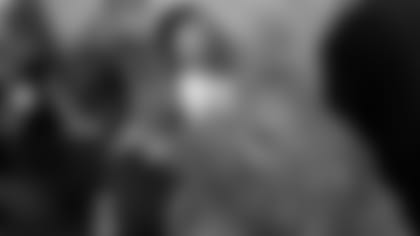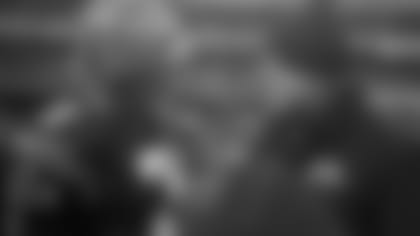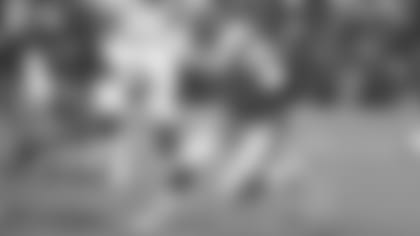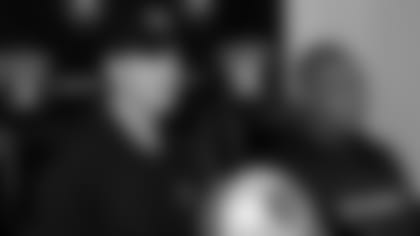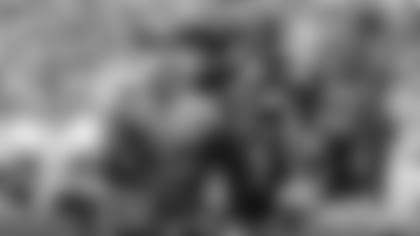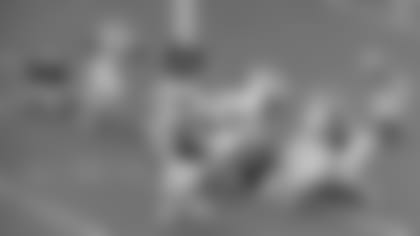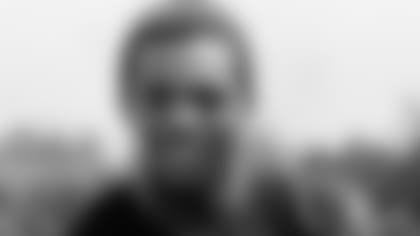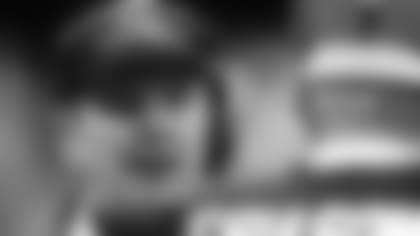The warmest memory in Bengaldom comes on its coldest day.
Jan. 10, 1982 dawns in Cincinnati as if on another planet. The mercury will rise only to minus-9, but it is that frightful 59-degree wind chill that pistol-whips Riverfront Stadium and forever baptizes the Bengals first AFC Championship Game appearance as "The Freezer Bowl."
The psych job pulled by the Bengals offensive line in the so-called warmups by appearing in its shirt sleeves sets an orange-and-black tempo for a day that will end with the Bengals ahead, 27-7. That sends them to Super Bowl XVI for a reunion with former Bengals assistant coach Bill Walsh, now the coach of a 49ers team that will pluck the NFC title out of the air later in the day, thanks to Joe Montana and Dwight Clark.
Bengals quarterback Ken Anderson prepares for the upcoming game against his mentor by playing out of this world on this day, somehow completing 16 of 22 passes for 161 yards and two touchdowns.
Tight end M.L. Harris catches the first and most important one from eight yards out despite wearing regular winter gloves. Tight end Dan Ross hauls in five catches for 69 yards. The offensive line that slathered Vaseline on their bare arms paves the way for 318 yards. The front office does its part when assistant general manager Mike Brown ignores the pleas of Chargers owner Gene Klein to postpone the game and move it to San Diego.
"What I'll always remember is how our guys played like it was another game," head coach Forrest Gregg will say on the 20th anniversary. "They just went to work like it was any other day. And the way they executed in those conditions was just amazing. We played as if it was a normal day."
Gregg ends this day with the distinction of winning the two coldest games in NFL history. He had been the right tackle in the Ice Bowl when he dug in next to right guard Jerry Kramer and center Ken Bowman on the Lambeau Field goal line as Packers quarterback Bart Starr knifed between them with 16 seconds left to give Green Bay the NFL championship over the Cowboys in minus-13 and minus-48 wind chill weather on the last day of 1967.
Now 14 years later the icemen cometh again and while San Diego stumbles to four turnovers (future Bengal running back James Brooks has a costly fumble), Gregg's men turn it over just once. After the Packers lost the 1960 NFL title game on a frozen field in Philadelphia, Packers coach Vince Lombardi never practiced indoors again on the way to five NFL titles.
So he sends the Bengals outside all week before the game.
"Forrest didn't keep us out there very long," cornerback Louis Breeden will remember. "But I remember thinking, 'What are we doing out here?'"
Breeden, looking for anything to keep warm, wears pantyhose under his uniform and comes up with an interception to match the one he took 102 yards for a touchdown in San Diego just 64 days before.
But defensive end Eddie Edwards isn't as lucky. It is the first game Riverfront has heated benches, but Edwards burns his ears trying to keep them warm in a heated cap. Cornerback Ken Riley remembers, "He burned them raw. You could see the smoke coming off his ears."
But then the Bengals burn the Chargers.
"We only had one turnover and that was late," Anderson will remember of Ross' fumble on the last series. "That was a big reason why we won. We were used to it. We practiced in it. And going up 10-0 so early was big. We stuck with underneath routes and crossing patterns. A lot of that stuff we did all year."
What the Bengals did that year was dominate the AFC with their balanced offense and opportunistic 3-4 defense that baffled offenses. And Anderson remembers the advent of Bengalmania, complete with painted faces and black wigs and a roaring home-field advantage.
"What didn't we have on offense?" Anderson has asked several times down through the years. "We had a 1,000-yard running back who ran over you in Pete Johnson. Danny Ross was a 70-catch-a-year tight end. (Receiver Cris) Collinsworth was sneaky fast, Isaac (Curtis) could still run and we had a fast third receiver in Steve Kreider who could also produce."
What Bengals founder Paul Brown didn't have on his Hall of Fame resume until this day was an appearance in the Super Bowl, that modern creation spawned the year the Bengals were born and after he led the Browns to 11 title games in two leagues.
"I remember how elated he was," Gregg will later say. "He had a big smile and said, 'We're going to the Super Bowl.'"
Riley remembers being "on a natural high" in the locker room. Breeden remembers guys just happy to thaw out, never mind going to the Super Bowl. Anderson remembers how happy Brown was as he shook hands all around.
"It was a great day," Mike Brown will say years later about the day he froze out Gene Klein. "I would dearly love to have another one just like it."






